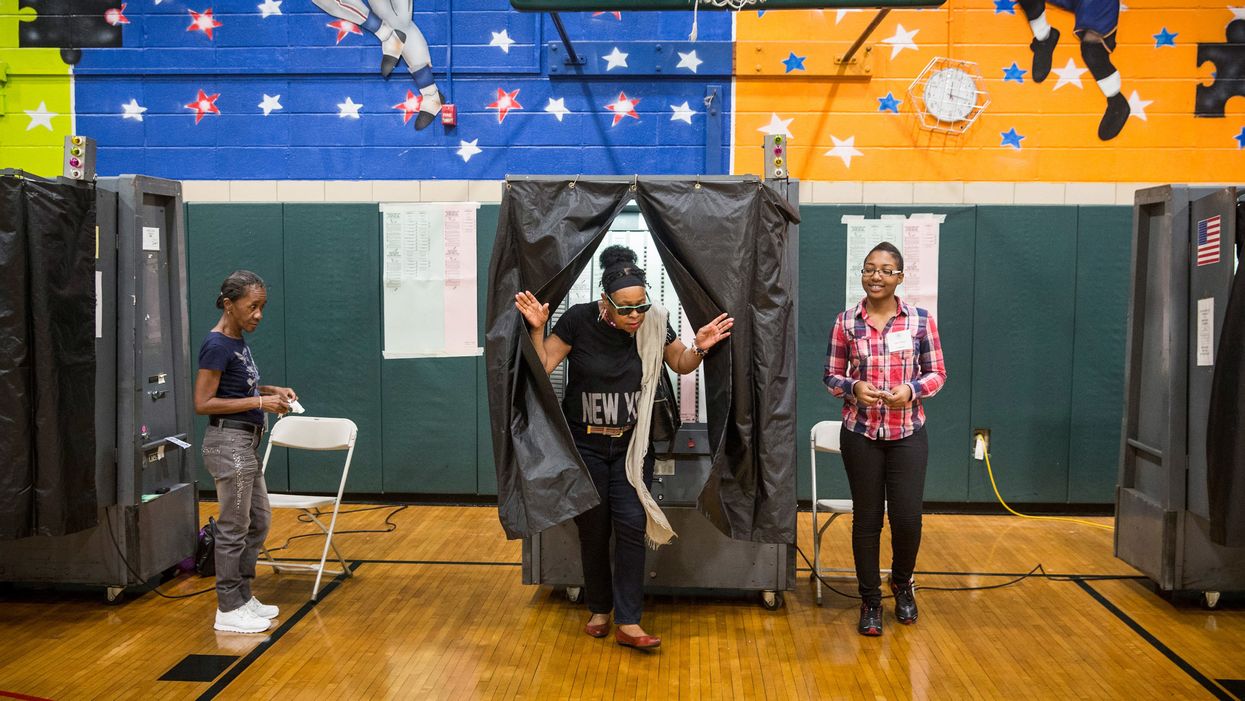Ranked-choice voting will step out onto another prominent stage this year: The people of the nation's largest city will decide in November whether the innovative and controversial system will be used for primaries and special elections.
The commission charged with updating New York City's charter, the equivalent of a constitution, voted 13-1 on Wednesday in favor of switching to a multiple-choice approach to municipal balloting.
If the voters agree, it would be the most prominent victory to date for advocates of ranked choice voting. Not only is New York home to 8.6 million people, but it's also the home of most media organizations driving the national political conversation. So an embrace of ranked-choice voting there could elevate its acceptance even more, and earlier, than its debut in the 2020 Democratic nominating processes in at least six states.
Under the RCV system – also dubbed IRV, for instant runoff voting – going to the polls means ranking the candidates for each office in order of preference. If no one wins a majority of No. 1 ballots, the candidate with the least votes is eliminated and the ballots with that person in the top spot are redistributed based on their No. 2 rankings, the process continuing until one candidate has a majority.
Proponents say RCV provides a more authentic way of reflecting the breadth of support for candidates and pushes politicians toward greater civility and moderation, because being "everyone's second choice" can prove to be a winning strategy. Opponents say the system is confusing, vulnerable to fraud and goes against the candidate-with-the-most-votes-wins custom of American elections
New York "should trust Hamilton and Madison over Rube Goldberg in structuring its democracy," Merryl Tisch, vice chairman of the state university system trustees, said in casting the only "no" vote on the charter commission.
San Francisco is the biggest of about 20 cities that have already embraced ranked-choice voting for municipal elections. Maine is the only state to use it for state and federal candidates.
But advocates celebrated the move in New York as a watershed moment for their cause. "This is a tremendous victory," said CEO Rob Richie of FairVote, one of the leading advocates for ranked-choice voting.
An amendment to add November balloting to the referendum proposal was narrowly rejected, prompting commissioner Sal Albanese to lament that the city would be considering "a half measure" that if adopted would confuse many New Yorkers by creating two voting systems.
Other commissioners, however, suggested that using RCV for the primaries was a bold move and that it would help improve historically low turnout in the preliminary round of voting in the city, where winning the Democratic nomination is tantamount to winning election for most positions.
"Election reform is the gateway though which every other improvement is going to be achieved," commissioner Stephen Fiala said.




















Trump & Hegseth gave Mark Kelly a huge 2028 gift